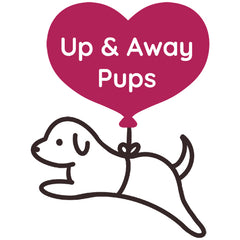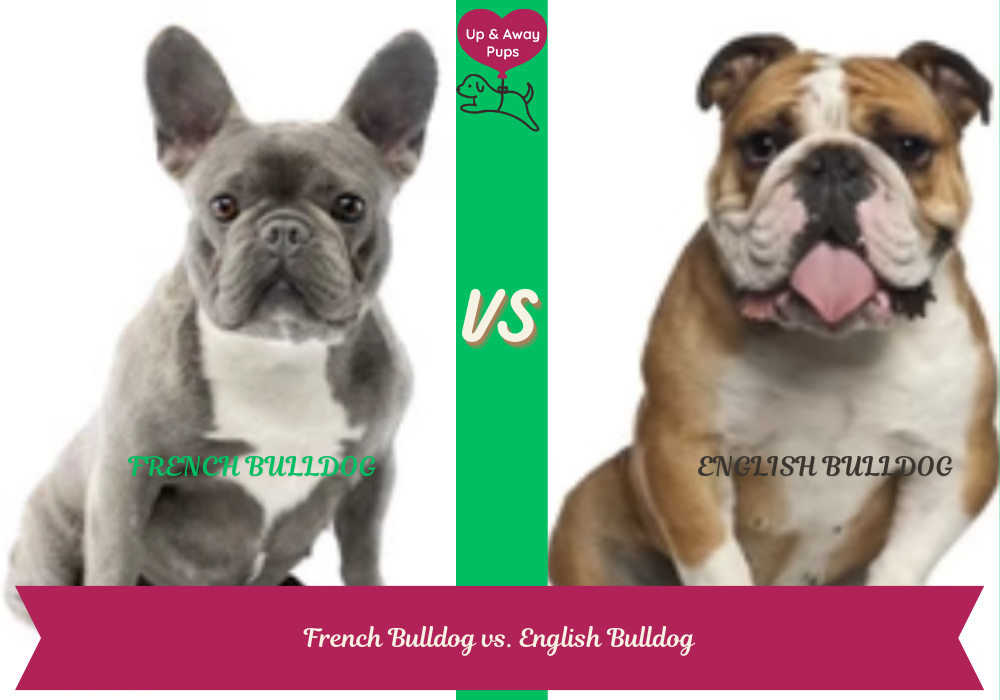French Bulldog vs. English Bulldog: Which Breed is Right for You?
Are you planning to add a bulldog to your family and grappling with deciding between a French Bulldog and an English Bulldog? Although they will have identical names, the English Bulldog and the French Bulldog are two very different dogs, each with its unique characteristics and quirks. They look unique and lovable, and both have giant fan clubs, so they could both be the ideal option for you.
French bulldog Vs. English Bulldog
If you plan on getting a bulldog, then it is the ideal time to dive deeper into the core differences between the breeds. So, should you choose English Bulldog puppies or French Bulldog? We will find out here.
About Their History
-
English Bulldog: It was during the 13th century when English bulldogs were first recognized. It was mainly due to their powerful jaws, strong bodies, and numerous folds that made this breed best for the cruel sport called bullbaiting. Fortunately, the sport was forbidden in 1835; however, fighting still went underground. Although a few people often decided to create a crossbreed between English Bulldogs and Pit Bulls, the other decided to use them as companions and guards. However, English Bulldogs got their fair share of chance to become pets due to their fanciers that bred them into becoming calm and gentle. It is now that English Bulldogs got their fame for their calm and affectionate nature. They are mainly prominent among the non-sporting people since they do not need any activity.
- French Bulldog: Speaking about the French Bulldogs, they have their roots in England. They were created by crossbreeding between English Bulldogs and other domestic toy breeds and pugs during the 19th century. The French Bulldogs took the spotlight in France when Nottingham Lacemakers expanded their entire business over the island. Unlike the English Bulldogs, the Frenchies changed their aesthetics throughout history. They would take the high 4th position on the list of the highly prominent dog breeds.
Appearance
-
English Bulldog: These breeds are stronger and bigger compared to their French counterparts. The dogs would often weigh around 40 to 50 pounds. They have a stockier frame of about 14 to 15 inches. Weight is also an important consideration when it comes to pet ownership. If you have limited mobility or other challenges lifting heavier objects as a 50-pound dog might become more difficult to handle. These breeds have eyes that are wide and are often described as having meatier heads than the French bulldog. The English Bulldog has more droops that surround their face, with chops hanging past their lower jaws.
- French Bulldog: French Bulldog puppies have tall and erect ears, often known as bat ears, as one of their unique features. They have smaller heads than the English bulldogs with more unique features. Their skin is tight, with fewer droops and folds around their faces. A French Bulldog mainly measures about 11 to 13 inches in height and weighs around 28 pounds, which is often smaller compared to the English bulldog. They have smoother and shorter coats with their eyes that are rounder and set closer together than the English Bulldog.
Temperament
-
English Bulldog: English Bulldog puppies are known for their affectionate and lovable nature; however are playful and less active. These are the laid-back pups who are ideally content snoozing in your lap or having their bellies rubbed. They are less likely to behave as a prankster than French Bulldogs; however, they are gentle with kids and make the best family dogs. English bulldogs require a great deal of attention from their owners to avoid separation anxiety. So, irrespective of the breed you are choosing, you need to shower plenty of love to your pet.
- French Bulldog: French Bulldogs are a friendly and playful breed who are at times known to keep their owners entertained with their silly antics. They are lovable dogs craving affection. One major downside of French Bulldogs is that separation anxiety causes them to react. Ensure to shower a lot of love, attention, and care to your French Bulldogs. Those leaving their pets alone at home due to work schedules should not own a Frenchie. They are the best option for families with small children, and they are typically loving, gentle, and playful with kids.
Grooming
-
English Bulldog: The grooming needs of the English Bulldog are mainly the same; however, you will have more wrinkles, sags, and folds to work with, indicating that there are more places for the odor to grow. Check with your vet for the ideal cleaning products for safeguarding the sensitive skin of the English Bulldog.
- French Bulldog: A bath each month or two should be sufficient to keep your French Bulldog clean; however, there is something more than baths. The folds and wrinkles in French Bulldogs become the breeding ground for infections and odor, so you have to take the right care by brushing them regularly, inspecting their skin and coat for signs of infection, and using special cleaning products that are formulated for their sensitive skin. Your French Bulldog will occasionally shed leading to the importance of regular brushing. You should ensure to keep their toenails professionally trimmed.
Training
-
English Bulldog: An English bulldog is often tough to train compared to Frenchie, as he is less active and considered lazy in some situations. Getting your English bulldog to follow the commands becomes a challenging task. It is where you can find puppy training programs that can help you train them better. These pups are extremely lazy and stubborn. However, a few experienced dog owners will find it fortunate enough with the English bulldogs, with many of them using harness training instead of leash training.
- French Bulldog: The Frenchies have a highly active nature, making them easier to train than the English Bulldog; however, they become independent and headstrong, which is often challenging for the owners. The main key involved here is patience and persistence. The French Bulldogs are smart animals as they will learn the commands with consistent training exercises.
Lifespan and Health Challenges
-
English Bulldog: English Bulldogs often battle respiratory issues and become overheated. They suffer from eye health issues like cherry eye and hip dysplasia. You might experience a good amount of expense at the vet office with both breeds.
- French Bulldog: Frenchies have a bit longer lifespan compared to English bulldogs; however, both breeds encounter numerous health challenges. They typically make it to ten to twelve years; however, the owners expect to face respiratory issues caused due to their flat faces as they are a brachycephalic breed, skin allergies, and ear infections.
French Bulldog vs English Bulldog: Which Breed Is Right For You?
A French Bulldog is often the better option for an active family, considering the temperament. The English Bulldog would find it grappling to stay up with the group that is always on the move instead of lying in the sun on the front porch or curling up with the family on the sofa.
Furthermore, the French Bulldog is the ideal choice for both breeds if you need a light-weight dog. An English bulldog is lovable as a stout and strong pup, which is too much for a few owners to move around, carry to the vet, or bathe.


